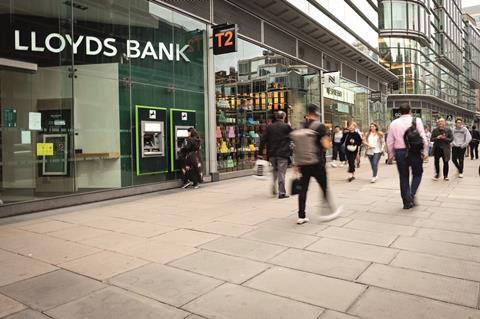The extra payment would be funded by generating savings on housing benefit payments
Lloyds has proposed a new model for social housing funding, which would involve redirecting public subsidy from housing benefits to finance social housing development.

The Social Housing Contract (SHC) payment would provide an extra payment to housing providers delivering social rent homes.
The payment, which would be in addition to rental payments, would increase social landlords’ guaranteed revenue and the upfront private capital available to finance the development of new social housing.
Lloyds stated that the government could fund these additional payments through savings in housing benefit costs, which would be made when a household moves from the private rented sector to the social housing sector.
The savings per household that the government would make vary based on geography and household type, ranging from £2,500 per year to nearly £8,000 per year in London.
Savings rates are even higher where households are moving out of temporary accommodation.
>> See also: Lloyds Banking Group to convert old office sites into social housing
>> See also: Housing leaders warn Rayner 1.5m homes can’t be delivered without ‘fair financial model’ for social housing sector
The cost of housing benefit in the private rented sector is on average 22% higher than in the social rented sector, and 42% higher when looking at those on Local Housing Allowance (LHA) rates.
LHA rates are the maximum amount of housing benefit that can be claimed by a household living in a private rented home.
Lloyds’ report ‘Building futures, a new era of investment in social housing’, said that transitioning to this model could generate 20,000 to 95,000 additional social homes over a decade “at little to no additional public sector cost”.
Under the current funding equation, the £280,000 development cost of a home is funded through three sources: an upfront grant of £195,000; additional debt, repaid over time through social rent payments; and, an additional capital gap of £15,000, often currently funded by housing associations.
Lloyds has put forward two potential models that incoporate SHCs. Under model one, which would give social landlords a lower-level SHC payment, for example set at £2,600 per annum for 30 years.
Modelling undertaken for the paper suggests that this would allow for £45,000 of additional private capital to be invested upfront, repaid through the revenues provided over 30 years by the SHC. This would mean that the total grant requirement per home would be reduced.
Model two would involve a higher level of SHC payment, at £8,000 per year, the total amount of upfront private capital that could be raised would increase to £130,000 per property.
Charlie Nunn, chief executive at Lloyds Banking Group, said: “We need a new social contract for housing, for the present age. This requires an investment programme which helps pivot housing welfare payments into a mechanism to attract capital into building new social homes. We need to support housing supply in a way which doesn’t put further strain on the balance sheets of housing associations and registered providers.
Nunn added: “And this in addition to the priorities of the National Housing Federation and partners across the housing sector: a long-term rent settlement, increased central subsidy, and a housing strategy which encompasses everything from a new towns policy, to improving the quality and availability of social homes.”











No comments yet